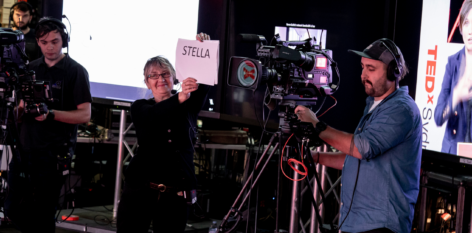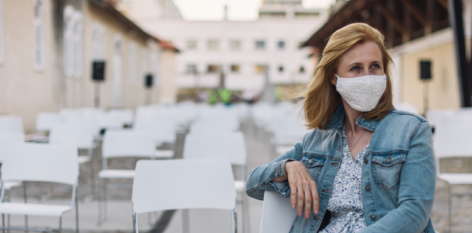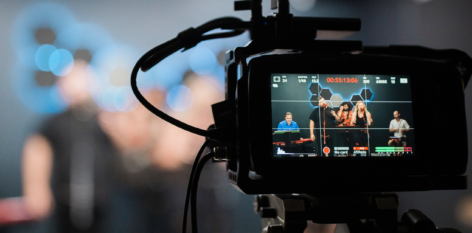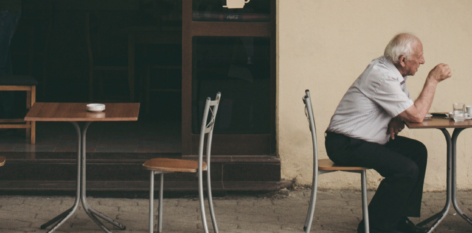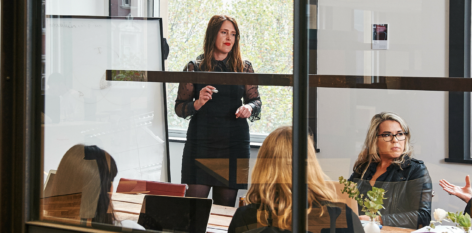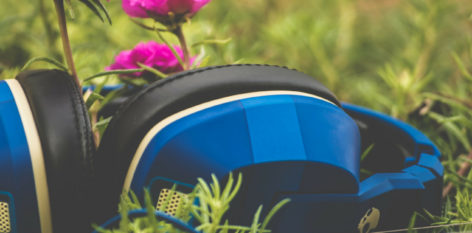We all love to show off how well we’re doing, whether it’s with an endless feed of oh so perfect pictures on Instagram or Facebook. But is that reality? Are we being real with ourselves or living a lie, dying inside, feeling depressed and alone. Social media turning us into overstimulated anxious messes.
Smartphone penetration in Australia has grown from 76% to 91% over the past six years and the rise of social media means as a global population we’re more connected than we have ever been in the history of time.
Yet anxiety and depression rates continue to rise, according to the Australian Bureau of Statistics’ (ABS) National Health Survey: 2017–18. Revealing one in eight (13.0% or 2.4 million) Australian adults experienced high or very high levels of psychological distress, an increase from 2014-15 (11.7% or 2.1 million). While there are multiple factors that affect our overall health and wellbeing it can’t be ignored the pervasive effect technology has on our lives.
Social media is designed to use the basic human need for belonging and connection with others. So, a fear of missing out, commonly known as FOMO, is at the heart of many features of social media design. That keeps you scrolling the endless feed to make sure you don’t miss a post from friends.
Social media is not all bad, there are benefits, e.g. find and keeping in touch with old school friends or keeping in touch with friends living abroad without getting stung with international fees. But using it too much (with no daily limit) can make you feel more and more unhappy and isolated in the long run.
Instagram can leave you feeling inadequate constantly seeing all the toned, tanned fitness models. Or obsessing over your Facebook feed just before bedtime might be why you’re having trouble switching off and getting a good night’s sleep.
So in our age of connectedness are we using social media as a crutch because we’re afraid to genuinely connect for real and be vulnerable? Being REAL is scary you have to open yourself up to the possibility of not showing off a flawless you. It’s easier hiding behind that curated Instagram image because it’s OK if they talk negatively/criticise that version of you because it’s not the REAL us anyway. Are we protecting ourselves?
But when we create a life for ourselves and the persona we project on social media departs too much from who we actually are, our anxiety about being “revealed” increases. But we need to come to terms with the fact that no one is perfect as a human being we’re naturally flawed, and by showing you’re not perfect, others will relax too and more people can relate to you.
Human connection, real human connection is hard(maybe impossible) when we’re glued to our screens, instead we become more acquainted with our friends’ digital persona than their real-life personality.
“When we derive a sense of worth based on how we are doing relative to others, we place our happiness in a variable that is completely beyond our control,” Dr Tim Bono, author of When Likes Aren’t Enough
Technology and social media make our lives more convenient, certain, and entertaining, but we lose out on chances to practice coping with uncertainty, inconvenience, and boredom.
So here is three ways can we keep it real and strike a balance as we move forward in an increasingly digital world.
- On-screen vs. off-screen
- IRL
- Strike a balance
On-screen vs. off-screen
On-screen communication is really different from face-to-face. Communicating via a screen whether it’s via email, texting, or posting to social media allows us the luxury of reacting to and responding to things on our own time.
This course takes up more time, whereas face-to-face communication (or just calling someone) happens in real-time. Which can be scary if you have no safety net if you say or do something embarrassing or awkward. But if you avoid situations there’s less real-time experience to draw on, we never learn staying shaky and uncertain, making us anxious.
So to combat that find ways to switch your on-screen to off-screen (where practically possible of course, we don’t expect long haul flights if a friend is living on the other side of the world). So instead of texting try voice memos (no editing allowed) your friends can hear your voice and tone too in case you were being sarcastic. Or switch that What’s App Group chat to in-person catchup over food and drinks.
IRL (In Real Life)
We are all guilty of spending way too much time trying to take that perfect photo, sometimes taking 100s of shots just to get that “perfect effortless” selfie or sightseeing snap or at your favourite music concert. Trying to show people online what a brilliant experience you’re having all the while not actually absorbing the first-hand experience of witnessing it with your own two eyes.
“If we direct all of our attention toward capturing the best shots for our social media followers to admire, less will be available to enjoy other aspects of the experience in real time,” said Dr Bono.
Strike a balance
60% of Australians are trying to limit their smartphone use. This includes turning the sound off on their phones (28%) for a period of time and taking phone-free holidays, according to Deloitte’s Mobile Consumer Survey 2019.
Just to be clear I’m not a technology hater and don’t advocate a sudden cold turkey (unless you really want to). We’re trying to change because social media, when used too much or without caution, has been proven to cause unhappiness, and can also lead to the development of mental health issues like anxiety or depression.
In a survey of 1,000 individuals, more than a third of Generation Z stated that they were quitting social media for good as 41 per cent stated that social media platforms make them feel anxious, sad or depressed.
But small adjustments can make massive improvements, especially something so important as sleep for overall well being. Getting enough sleep is crucial to your health but using your phone just before bedtime, makes it harder to doze off. You disrupt your body’s natural clock with that white light beaming in your face can suppress the natural release of melatonin(the hormone that helps us feel tired).
Summary
Technology is everywhere, and mobile phones have become an essential part of everyday life. While you don’t necessarily have to quit social media for good if you feel like it’s beginning to bog you down, give yourself social media windows during your daily routine instead of giving yourself unrestricted access. This slight change could have a huge impact.
Overall, the tide is turning. People are craving a real connection and want to keep it real in an increasingly digital world. So don’t bin your smartphone, instead make room for people you won’t regret having more meaningful real interactions with in your life.


